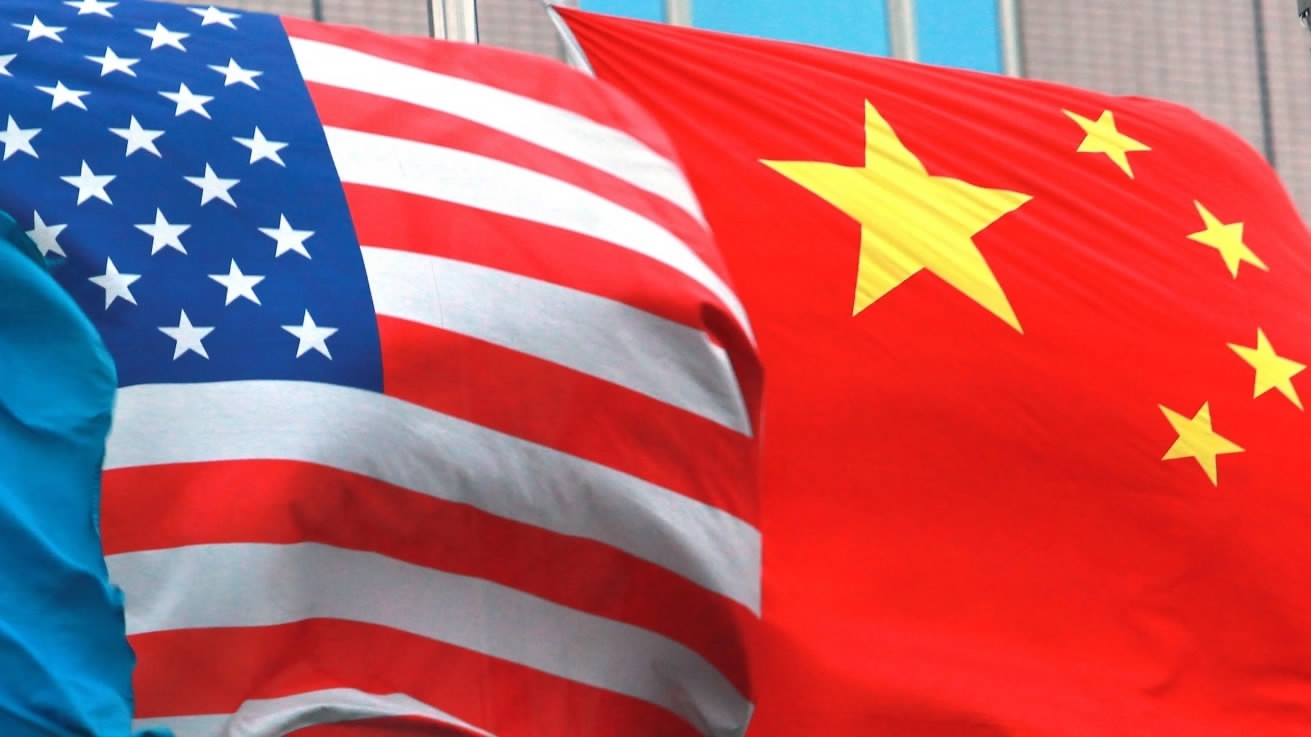Despite differences, China and the US are the two most interdependent countries in the world economically and increasingly diplomatically.
How can the two countries come together to help solve regional and global problems, maintain their own growth while providing development opportunities for the rest of the world?
Back in 2013, Chinese President Xi Jinping called for a new model of major power relations between the two giants in a bid to avoid conflict.
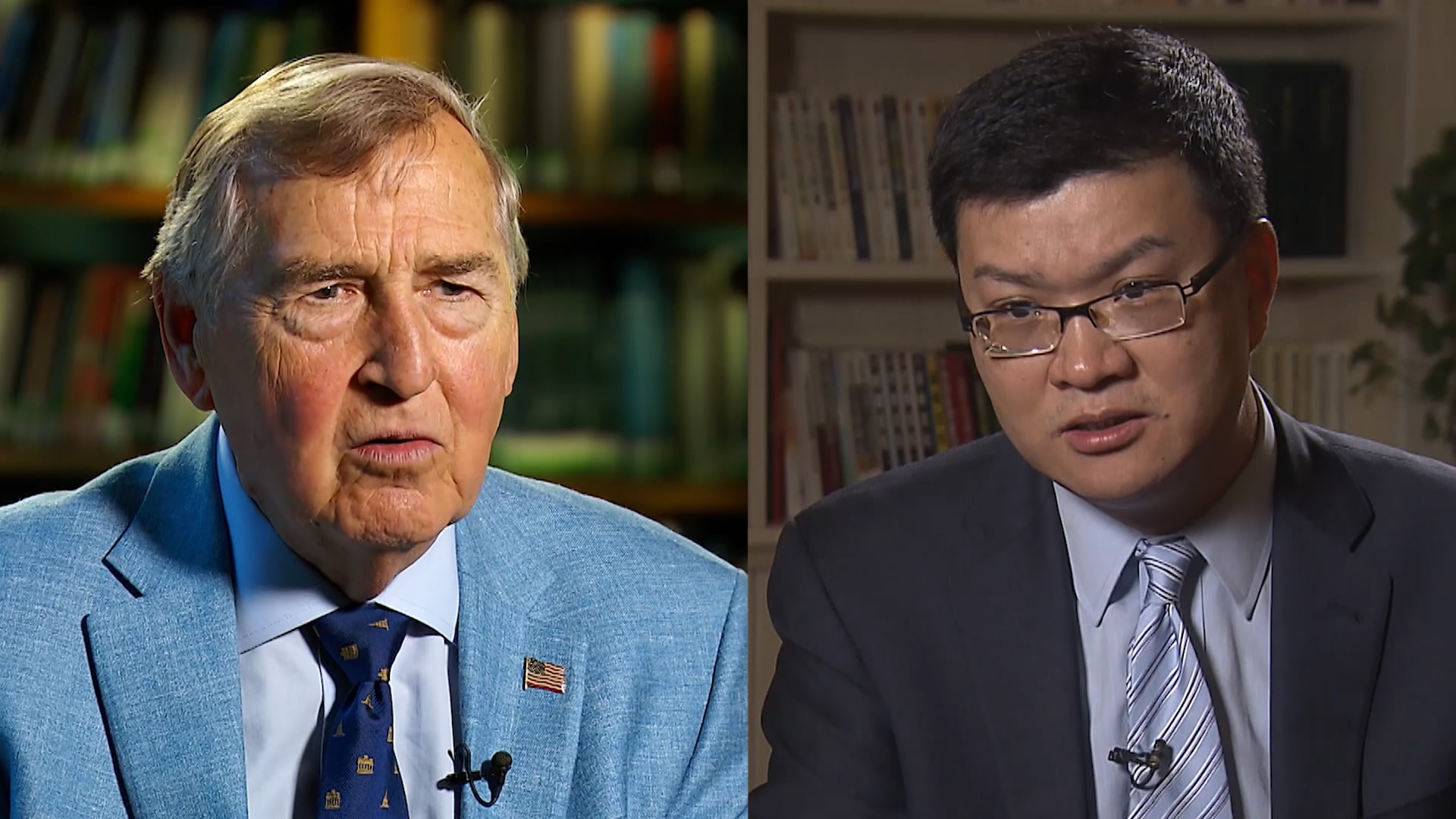
CGTN's Nathan King talked to two leading academics – from the US Professor Graham Allison at Harvard University and from China Professor Da Wei at University of International Relations, on how Beijing and Washington can realize a peaceful and prosperous future. /CGTN photo by Peter Stolz
CGTN's Nathan King talked to two leading academics – from the US Professor Graham Allison at Harvard University and from China Professor Da Wei at University of International Relations, on how Beijing and Washington can realize a peaceful and prosperous future. /CGTN photo by Peter Stolz
On both sides of the Pacific we sat down with two well-respected academics on China-US relations – from China, Professor Da Wei at University of International Relations, and from the US, Professor Graham Allison at Harvard university – united in their desire to see the US and China work together to tackle the worlds’ problems rather than confront each other – both agree the current situation in the DPRK is a test.
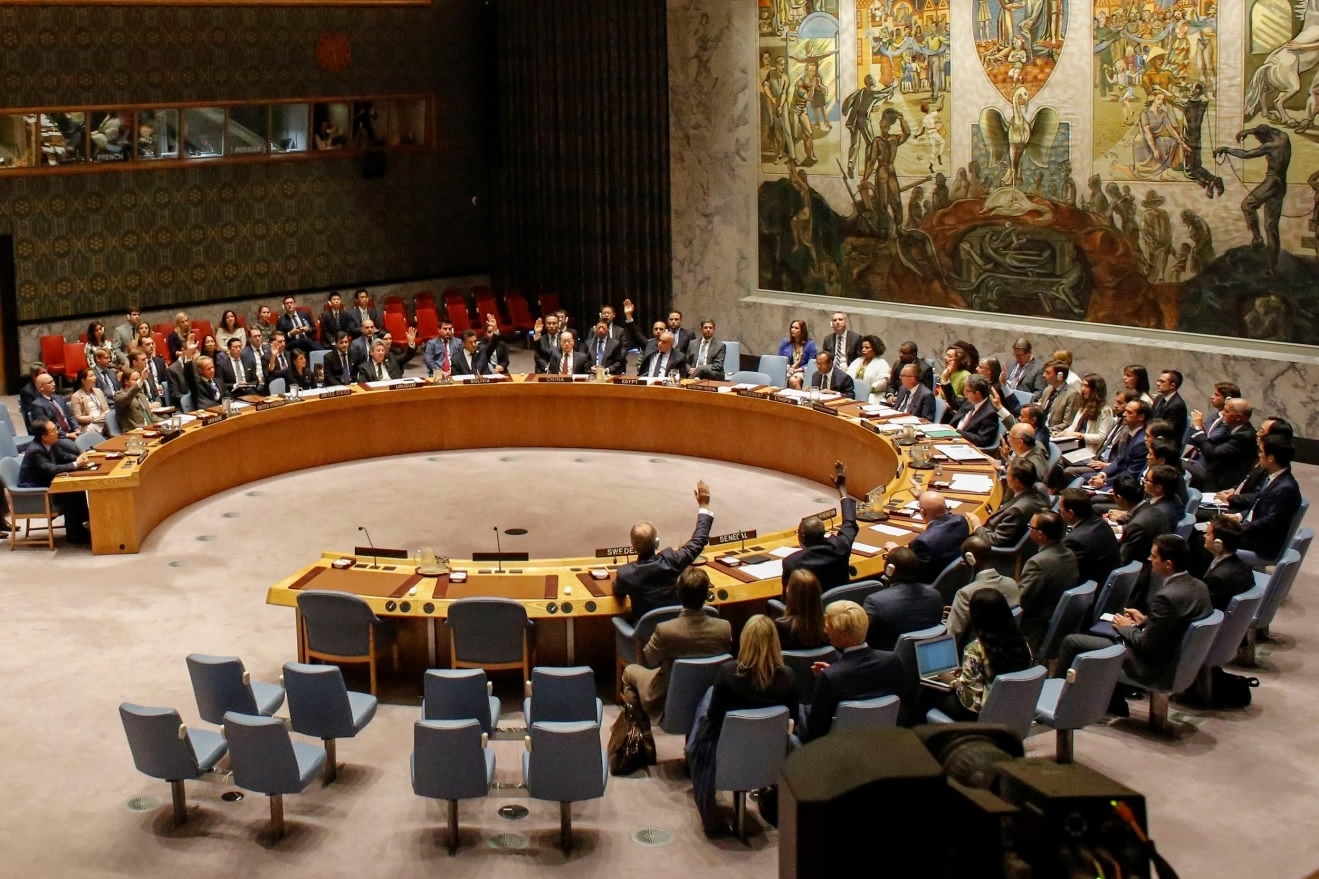
Members of the UN Security Council vote at a UN Security Council meeting over DPRK's new sanctions in September 2017. /VCG photo
Members of the UN Security Council vote at a UN Security Council meeting over DPRK's new sanctions in September 2017. /VCG photo
Professor Graham Allison told CGTN, "It's perfectly possible that North Korea (DPRK) will drag China and the US into a war that no-one wants so I think the good news is that no one in China wants a war with the US and no one in Washington thinks are with China is a good idea."
Professor Da Wei says, China and the US actually agrees on the fundamental problem of DPRK's program, saying, "We need to avoid this kind of Cold War mindset that divides different countries into two camps. It's true that China and the US have different ideas, different opinions over this issue but that does not mean that China is an enemy of the US or the US is an enemy of China. So we need to understand that our basic goal is the same like demilitarization like the stability of the Korean Peninsula.”
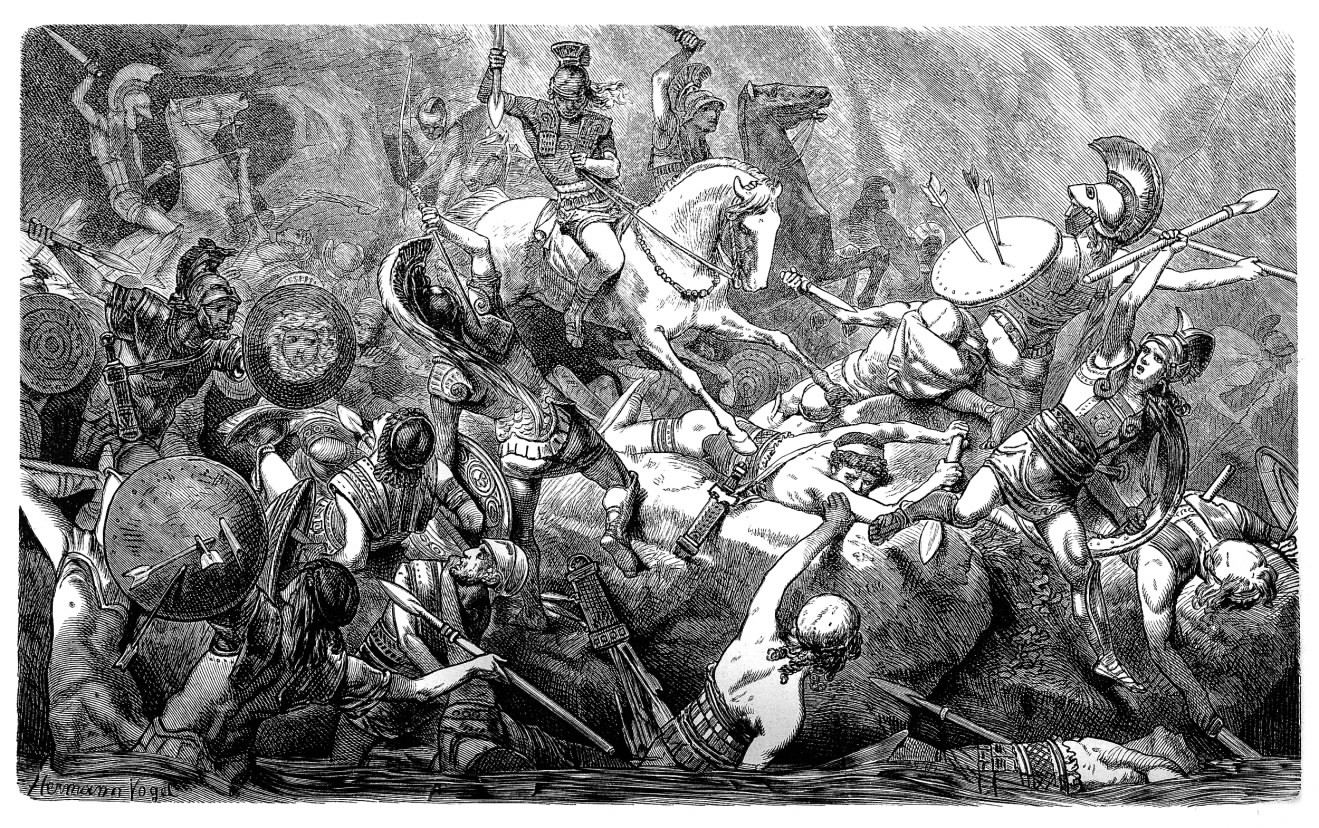
Thucydides wrote: "What made war inevitable was the growth of Athenian power and the fear which this caused in Sparta." /VCG photo
Thucydides wrote: "What made war inevitable was the growth of Athenian power and the fear which this caused in Sparta." /VCG photo
The differences were seen between the US and China also appear in many other areas. Professor Graham Allison invented the term Thucydides trap after the ancient Greek historian who observed that status quo powers like the US will often come into conflict with rising powers like China – Allison says the US must be flexible to make room for China's rise.
"Can we imagine a US that is as artful and agile as Britain was with dealing with the rising US, the US dealing with a rising China? Can Americans be that smart, can they be that agile? " "Well I would say that's a big question, a big question. Pushing Allison again I asked are they doing it now? Certainly not now, not now," Allison said shaking his head. Prof. Da Wei thinks a Thucydides trap can be avoided, insisting the age of zero-sum thinking in global affairs is over. "It's a brand new world that both the US and China live within. These two countries and we have great potential to be the most important two countries in this new world."
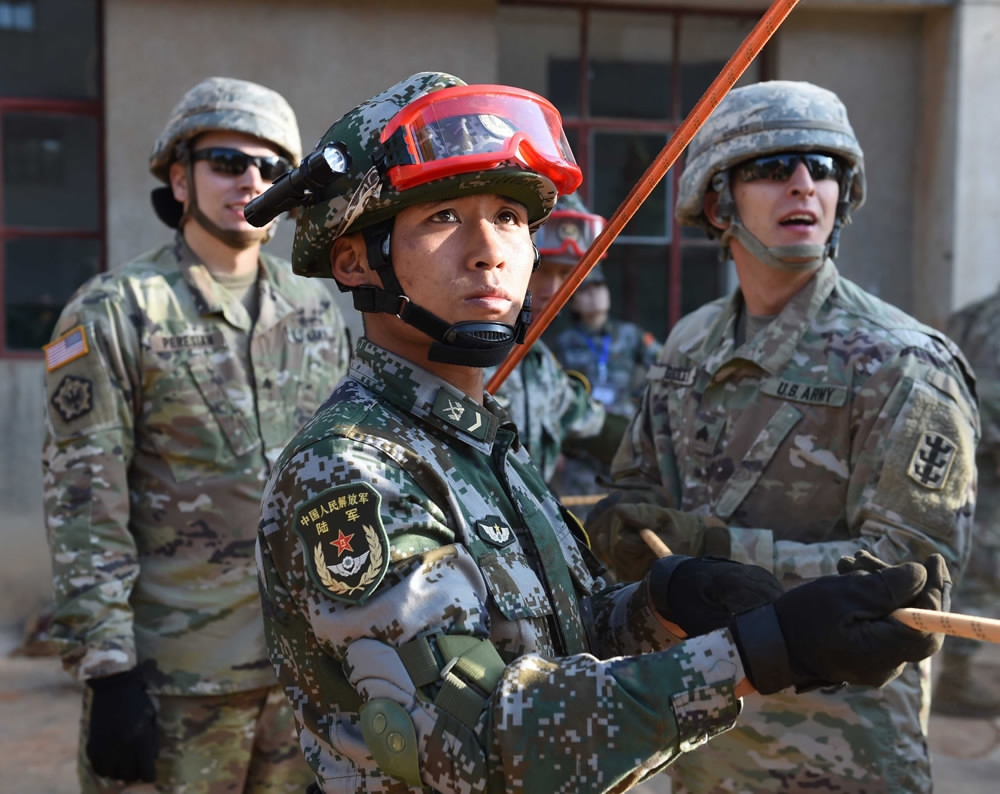
The armed forces of China and the US held a joint drill on humanitarian rescue and disaster relief in southwest China in November 2016. /Xinhua photo
The armed forces of China and the US held a joint drill on humanitarian rescue and disaster relief in southwest China in November 2016. /Xinhua photo
Both academics hope to see China and the US coming together to provide global solutions to big problems like nuclear proliferation, terrorism, infrastructure development and open and fair trade. More unites them than divides them. Professor Graham Allison from Harvard says the Chinese President understands the challenge well “I actually like Xi Jinping's proposal for a quote new form of Great Power relations. I think what he is saying is the old form most likely to produce history as usual what Thucydides told us about, so we have to be smart enough to find a new form."
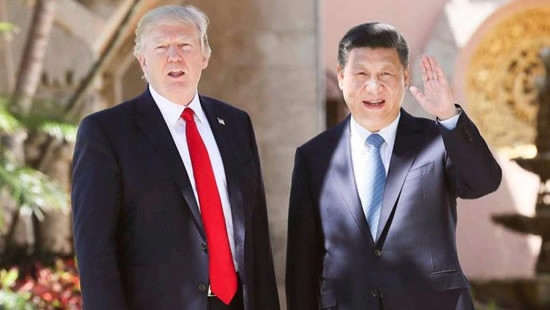
Xi Jinping and Donald Trump met at Mar-a-Lago, Florida in April 2017. /Xinhua Photo
Xi Jinping and Donald Trump met at Mar-a-Lago, Florida in April 2017. /Xinhua Photo
China is set to host US President Donald Trump for a state visit here in Beijing in the coming months. While focus will be on the problems of now, there will be also be room to chart the course of China-US relations for the future – both powers share more interests than those that divide them. How Beijing and Washington cooperate and compete will set the tone for the future.

